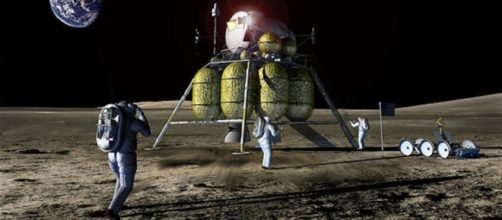Space News is reporting that Congress is moving to pass a NASA authorization bill soon and that it will be based on the NASA Transition Authorization Act of 2016 that was passed last year by the Senate but not by the House. That being the case, the Congress needs to tweak the bill to a certain extent to align it to the likely space policy of President Donald Trump. The bill does not mention a return to the moon, something that the current Congress needs to fix.
The bill does name the following as possible destinations for NASA astronauts. “Cis-lunar space, the surface of Mars, the moons of Mars, and beyond.” Cis-lunar space is defined as “the region of space from the Earth out to and including the region around the surface of the Moon.”
By omitting the lunar surface as a destination for future explorers, the Congress threatens to codify one of the worse mistakes made by President Obama during his first term when he explicitly ruled out a return to the moon in his now infamous speech at the Kennedy Space Center.
Subsequently both MIT and a think tank called NextGenSpace released studies, the latter funded by NASA, that indicated that a return to the moon is a vital first step in the Journey to Mars program. The moon also has a great many commercial, scientific, and political opportunities that can be accessed should NASA send astronaut explorers there, in partnership with other countries, private business, and academia.
This writer, in his book “Why is it so Hard to Go Back to the Moon,” reported how presidential space policy created by President George H. W. Bush and President Obama fell apart because neither consulted with Congress when formulating it. Now Congress is threatening to make the same mistake by not consulting the new president when it is establishing space exploration goals that do not include a return to the lunar surface.
The unnecessary embarrassment and conflict that would result if and when the Trump administration rolls out a return to the moon program could only be avoided if Congress include the lunar surface its list of space exploration destinations. Otherwise, the White House would be advised to veto the bill and send it back to Congress so that it may get it right.

